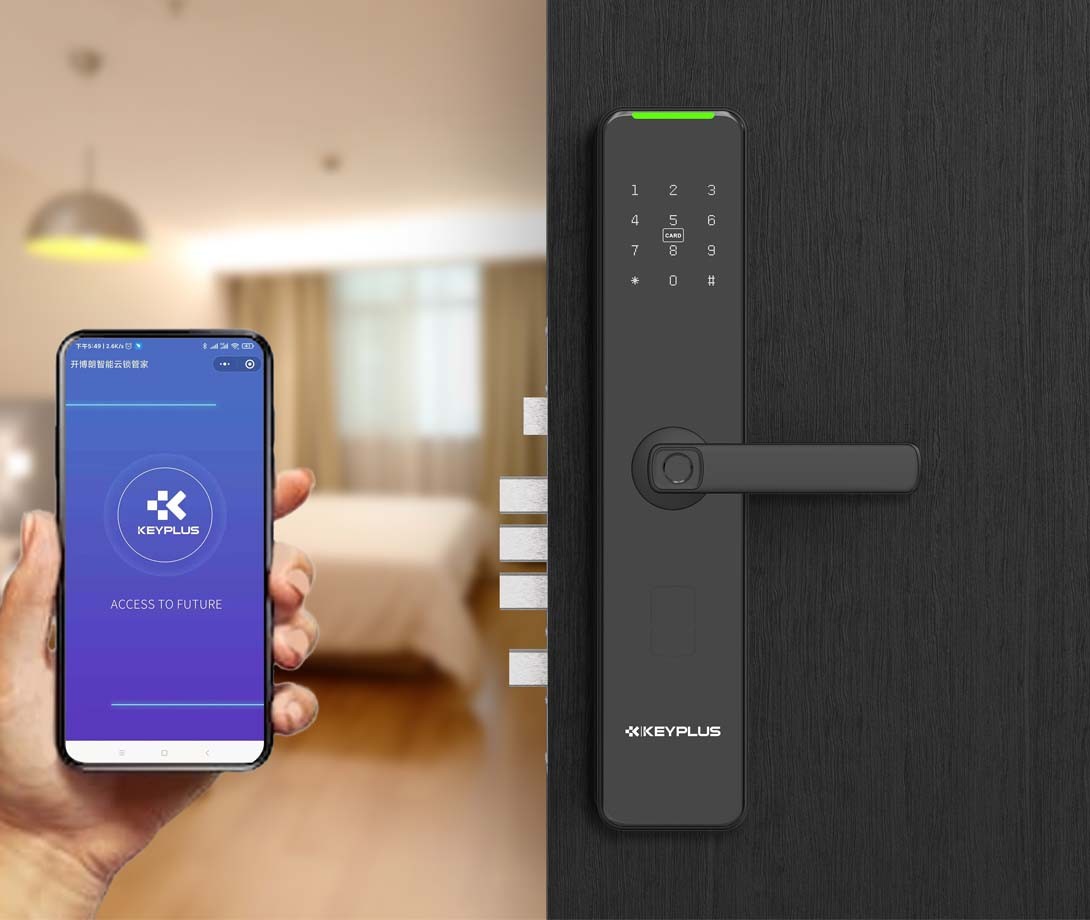Is a Smart Lock Better Than a Deadbolt?
For decades, deadbolts have been the gold standard for home security. But with the rise of smart home technology, smart locks are becoming a popular alternative. The question is: Which one is better?
The answer depends on your priorities—convenience, security, cost, and control. While deadbolts are simple and reliable, smart locks offer keyless entry, remote access, and smart home integration.
In this article, we’ll compare:
- How deadbolts and smart locks work
- Key security differences
- Convenience and smart features
- Installation and cost
- Which one is right for you?
By the end, you’ll know whether a traditional deadbolt or a smart lock is the best choice for your home.
1. How Deadbolts and Smart Locks Work
Traditional Deadbolt Locks
- Mechanical design – Uses a physical key to turn a bolt into the door frame.
- Single-cylinder vs. double-cylinder
- Single-cylinder – Key on the outside, thumb turn on the inside.
- Double-cylinder – Requires a key on both sides (more secure but less convenient).
- No connectivity – Works independently without power or Wi-Fi.
Smart Locks
- Electronic access – Can be unlocked via:
- Smartphone (Bluetooth/Wi-Fi)
- Keypad (PIN code)
- Fingerprint scanner
- Voice commands (Alexa/Google Assistant)
- Remote control – Lock/unlock from anywhere with an internet connection.
- Auto-locking – Some models lock automatically after a set time.
Winner?
- Deadbolts are simpler and don’t rely on power.
- Smart locks offer more entry options and remote control.
2. Security Comparison: Which Is Safer?
Deadbolt Security Pros & Cons
Proven reliability – Hard to pick if properly installed.
No hacking risk – No digital vulnerabilities.
Works in power outages – No batteries needed.
Cons:
- Keys can be lost, stolen, or copied.
- No activity logs – You can’t track who enters.
- Lock bumping & picking – Some older deadbolts are vulnerable.
Smart Lock Security Pros & Cons
No physical keys – Eliminates the risk of lost or copied keys.
Encrypted access – Most use AES 128-bit encryption (hard to hack).
Access logs – See who enters and when.
Temporary digital keys – Grant and revoke access remotely.
Cons:
- Battery-dependent – If it dies, you may be locked out (unless there’s a backup).
- Potential hacking risk (though rare with strong encryption).
- Some models can be physically tampered with.
Winner?
- Deadbolts are more physically secure against forced entry.
- Smart locks offer better access control and monitoring.
3. Convenience & Smart Features
Deadbolt Convenience
- Simple to use – Just turn a key.
- No tech setup required – Works in any home.
- No batteries or Wi-Fi needed.
Smart Lock Convenience
Keyless entry – No more lost keys!
Auto-unlock – Some locks open when your phone is near.
Remote access – Let in guests or service workers from anywhere.
Smart home integration – Works with Alexa, Google Home, or Apple HomeKit.
Temporary access – Give a cleaner or dog walker a time-limited code.
Winner?
- Smart locks win for convenience—especially for families, renters, and frequent travelers.
- Deadbolts are better for those who prefer simplicity.
4. Installation & Cost Comparison
Deadbolt Installation
- Easy to install – Most fit standard door prep.
- Low cost – $50-$150 for a high-quality deadbolt.
- No maintenance – Just occasional lubrication.
Smart Lock Installation
- Some replace the entire deadbolt, while others attach to the interior side.
- More expensive – $100-$400 depending on features.
- Battery changes needed (every 6-12 months).
- Wi-Fi/Bluetooth setup required.
Winner?
- Deadbolts are cheaper and easier to install.
- Smart locks require more investment but offer more features.
5. Which One Should You Choose?
Choose a Deadbolt If You…
- Want a simple, reliable lock.
- Don’t need remote access or keyless entry.
- Prefer a lower-cost, low-maintenance option.
Choose a Smart Lock If You…
- Hate carrying keys.
- Want remote access and guest control.
- Love smart home automation.
- Need access logs for security monitoring.
Best of Both Worlds?
Many smart locks work with existing deadbolts, combining traditional security with smart features.
Final Verdict: Smart Lock vs. Deadbolt
| Feature | Deadbolt | Smart Lock |
|---|---|---|
| Security | ⭐⭐⭐⭐⭐ | ⭐⭐⭐⭐ |
| Convenience | ⭐⭐ | ⭐⭐⭐⭐⭐ |
| Cost | $ | $$$ |
| Installation | Easy | Moderate |
| Tech Features | None | Remote access, logs, automation |
Conclusion
- A high-quality deadbolt is still the most secure physical lock.
- A smart lock is better for convenience, automation, and access control.
- Hybrid options (smart locks + deadbolts) give you the best of both.
If you prioritize security over tech, stick with a Grade 1 deadbolt.
If you want keyless living and smart control, a smart lock is the better choice.
What’s your pick? Let us know in the comments!
Post time: May-27-2025


